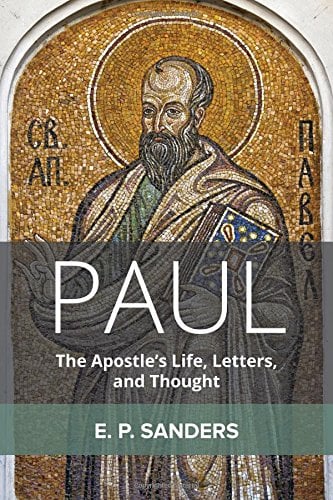p. 107– Acts and Romans agree about the results, namely Paul really only succeeded among the Gentiles. There is virtually no trace of any Jews in Paul’s letters who are his own converts (Timothy?). [Really? How does one account for the detailed use of the LXX, for example in Rom. 9-11 in his letters if there were few if any Jews in his congregations to help the audience understand those Scriptures?].
p. 109– He makes the astounding claim that in none of Paul’s letters prior to Romans does he refer to internal church conflicts that would arise if there were both Jews and Gentiles involved. [This is surely a misreading of 1 Cor.]. “It appears from Rom. 9-11 that Paul had not previously confronted the Jewish rejection of the Gospel, and for the first time he was trying to think through what it meant.”
p. 110- Sanders sees a flat contradiction between Acts and Paul’s letters on the issue of whether he tried to convert Jews first and then turned to Gentiles as Acts suggests. [This makes no sense out of 2 Cor. where Paul says he received the 39 lashes minus one multiple times, nor does it make sense of Rom. 1 where Paul says the Gospel is the for Jew first.] So Sanders concludes that Paul was always the apostle to the Gentiles. He takes 1 Cor. 9.20-22 not as a description of his actual missionary practice, but of his willingness to fit in in whatever circumstances he found himself. He did not preach exclusively to Jews in synagogues until he gave up in despair. [This ignores that there were Gentiles in the synagogues]. Sanders allows he sometimes attended synagogue and sometimes preached there but always his focus was on gentiles from the start. When he went to a town he did not start with the synagogue, he set up shop in the market and sought to win Gentiles first. [We do not know this from Paul’s letters].
p. 111- He suggests that Luke thought of Paul as primarily apostle to the Jews of the Diaspora whereas Paul saw himself as apostle to the Gentiles from the start.
[We must remember, there is a lack of interaction with most of the scholarship on Paul in the last 30 years. Next to nothing on rhetorical analysis of Paul.].
p. 112 n. 14 he claims that cilicium is working with the wool of goats, goat’s hair, to produce a cloth. [No. Cilicium is using the goat’s hide and hair to produce tents and other things.] Sanders follows Hock is suggesting that Paul converted Gentiles as they came to his shop in the marketplace. Maybe he didn’t proclaim or debate in the marketplace as Acts 17 suggests says Sanders. [More probably Paul adapted to the situations in differing cities and when he needed to work to support himself, he did so]
pp. 114-15— Most ancient religions were collective in nature, but apparently Paul offered something for the individual by way of salvation or immortality. Is this what attracted Gentile’s to Paul’s message? They would have had no problem with the notion of a deity taking on human form and performing miracles. But “why should gentiles accept the word of a wandering, ill-clad evangelist who was not even a gifted speaker?” (p. 115).
p. 116— Monotheism was philosophically appealing to some pagans, as was the high ethics of Jews. And the Cynics had conditioned people to listen to speakers who were shabbily clad. Sanders thinks there were God-fearers, and maybe Paul converted some of them, but the evidence of 1 Thess. 1.9 and Gal. 4.8-9 suggest straight conversion from paganism.













